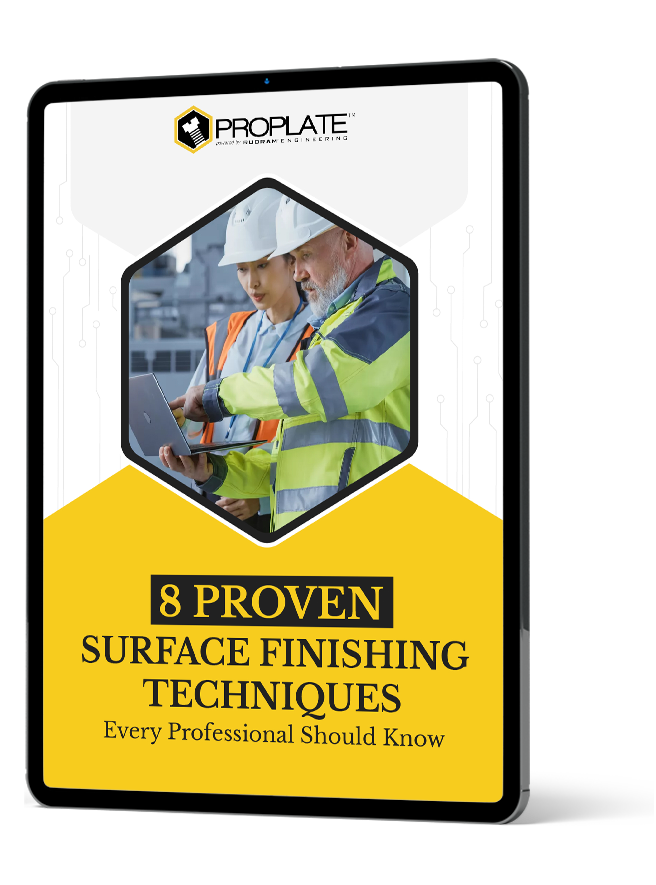In today’s highly competitive market, manufacturers must constantly optimize their operations to meet growing demands, reduce costs, and enhance productivity. Manufacturing process software plays a critical role in helping companies manage complex workflows, increase efficiency, and ensure product quality across the production lifecycle. Whether you’re managing a small workshop or running a large-scale factory, the right software can streamline your entire manufacturing process from raw materials to finished goods.
One standout solution designed specifically for companies involved in surface finishing is PROPLATE™, an advanced ERP system. Unlike generic ERP platforms, PROPLATE™ is uniquely tailored to the specific needs of businesses in surface finishing, providing robust tools for managing everything from production schedules and inventory control to compliance and quality assurance.
In this detailed guide, we’ll explore the essentials of manufacturing process software, how it helps modern manufacturers, and review some of the top solutions in the market.
What is Manufacturing Process Software?
Manufacturing process software is a digital solution designed to help manufacturers plan, execute, monitor, and optimize their production processes. These systems manage everything from inventory tracking, production schedules, and quality control to machine maintenance and resource allocation. By integrating various production operations into one unified platform, manufacturing software helps businesses operate more efficiently, reduce waste, and ensure products are manufactured according to strict specifications.
Core Features of Manufacturing Process Software:
1. Enhanced Efficiency and Productivity
One of the most significant advantages of manufacturing process software is the ability to streamline production processes. Automated scheduling and workflow management reduce bottlenecks, improve task coordination, and ensure that resources are used effectively. Real-time tracking allows manufacturers to address issues quickly, preventing delays and maximizing output.
2. Improved Inventory Control
Effective inventory management is crucial to preventing shortages or overstocking, both of which can affect the bottom line. Manufacturing process software offers real-time insights into inventory levels, making it easier to forecast demand, manage supply chains, and avoid production halts due to missing materials.
3. Better Quality Control
Manufacturing software helps enforce quality control measures by monitoring every stage of production. This ensures that products are manufactured according to set standards and specifications. Automated quality checks and data analysis help identify issues early, reducing the chance of defects and improving overall product quality.
4. Reduced Downtime
Downtime can significantly affect profitability, especially in industries that operate on tight margins. Manufacturing software incorporates predictive maintenance features that monitor machine performance and schedule maintenance before breakdowns occur. This proactive approach helps minimize unplanned downtime and keeps production running smoothly.
5. Cost Savings
By optimizing the use of raw materials, labor, and machinery, manufacturing process software helps reduce waste and lower operating costs. Automation eliminates manual errors, while detailed reporting highlights areas where efficiency can be improved, leading to long-term cost savings.
6. Data-Driven Decision Making
Manufacturing software provides comprehensive analytics and reporting, enabling managers to make informed decisions based on real-time data. Insights into production trends, employee performance, and machinery efficiency can guide strategy adjustments, helping businesses improve their operational performance and profitability.
Types of Manufacturing Process Software
There are several types of manufacturing process software, each tailored to different operational needs. Choosing the right one depends on the size of the operation, the complexity of the production processes, and the specific requirements of the business.
1. Manufacturing Execution Systems (MES)
A Manufacturing Execution System (MES) is designed to monitor and control production in real time. MES provides detailed information about every stage of the manufacturing process, from raw materials to final products. It integrates with other enterprise systems, such as ERP (Enterprise Resource Planning), to offer comprehensive visibility and control over the shop floor.
Key Features:
2. Enterprise Resource Planning (ERP) for Manufacturing
ERP systems integrate all business operations, including manufacturing, finance, human resources, and procurement, into a single platform. While ERP systems manage more than just production, they are crucial for planning resources, forecasting demand, and managing supply chains.
Key Features:
3. Product Lifecycle Management (PLM) Software
Product Lifecycle Management (PLM) software focuses on managing the entire lifecycle of a product, from initial design and development to production and eventual retirement. PLM helps manufacturers innovate by enabling collaboration between different departments such as engineering, design, and manufacturing.
Key Features:
4. Computer-Aided Manufacturing (CAM) Software
CAM software uses computer systems to control machinery and automate manufacturing processes. It is commonly used in industries that rely heavily on precision machining, such as aerospace and automotive manufacturing.
Key Features:
5. Supply Chain Management (SCM) Software
Supply Chain Management (SCM) software focuses on managing the flow of raw materials and finished goods across the entire supply chain. This includes procurement, production, and distribution. SCM solutions ensure that manufacturers can respond quickly to changing demand and maintain optimal inventory levels.
Key Features:
How to Choose the Right Manufacturing Process Software
Choosing the right software depends on your specific manufacturing needs, production volume, and the complexity of your operations. Here are key factors to consider:
Manufacturing process software is no longer a luxury but a necessity in today’s fast-paced production environments. With the right system in place, manufacturers can streamline operations, improve quality, and drive efficiency, ultimately boosting profitability and staying competitive in the global market.
About PROPLATE™
PROPLATE™, as your complete surface finishing solution platform, is an engineering marvel crafted to change your operations radically. Altogether, one can admit, due to the numerous features and tools the PROPLATE™ provides its users, that this software is the most efficient and convenient tool to control all stages of surface-making processes. From end-to-end process integration for projects to the easy exchange of information with clients, PROPLATE™ makes businesses capable of fine-tuning their methods to get real-world performance and best-quality outcomes. Whether for a single shop establishment or a huge production company, PROPLATE™ has the features for a successful plate fabrication makeover, ever-improved company services, and a competitive edge in the highly demanding industry of today.
